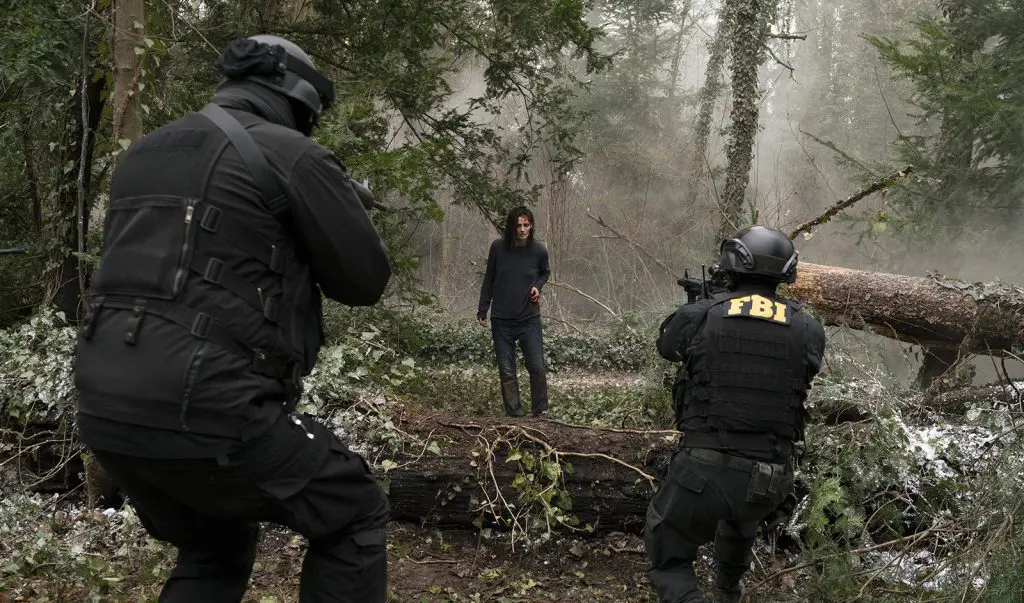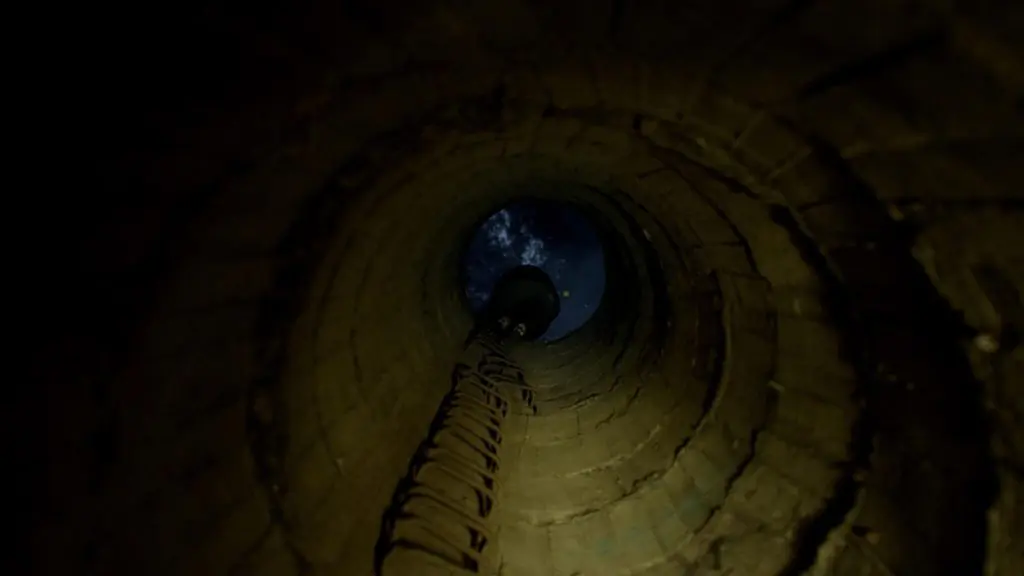Absentia is an Amazon-original thriller series about Emily Byrne (played by Stana Katic), an FBI agent who has been declared dead, and is found to be alive six years later. It was directed by Oded Ruskin, written by Matthew Cirulnick, Gaia Violo and others, and is a joint USA-EU production.
I never watched Castle, so I wasn’t familiar with Stana Katic. I’d never heard of most of the other names, cast nor crew, so had absolutely no idea what style or quality to expect. But the premise sounded intriguing, and, although there aren’t as many Amazon as Netflix Original, I have really enjoyed what I have seen so far of their titles. So I took the plunge. And unusually for me, I watched all ten episodes in three days. Absentia was indeed as entertaining and intriguing as I had hoped.
This is Stana Katic’s vehicle. She is in probably three-quarters of the scenes, and her character, Emily Byrne, is central to both the plot and the characters. Everything orbits around her more and more as Absentia goes on. Over ten episodes, Emily has to adjust to changes that have taken place during her absence, face accusations of murder, work out who was behind her abduction and deal with the trauma it has left her with. Apparently, she doesn’t remember more than glimpses of what happened to her during that time. By contrast, time has moved on thoroughly for her husband, Nick (Patrick Heusinger), who had looked for Emily for a long time; he now calls someone else his wife (Alice, played by Cara Theobold), and their son, Flynn (Patrick McAuley), calls her “Mom” too.
 On the surface, Absentia looks like yet another American drama/thriller series. And I must say the overall story arc is a) nothing terribly original and b) full of plot holes and red herrings. The story is a dark Hitchcockian whodunit involving someone discredited who has to investigate the crime she was a victim of herself, as no-one else is taking the clues she provides seriously (though it has a lot more strands than Hitchcock would ever have had time for).
On the surface, Absentia looks like yet another American drama/thriller series. And I must say the overall story arc is a) nothing terribly original and b) full of plot holes and red herrings. The story is a dark Hitchcockian whodunit involving someone discredited who has to investigate the crime she was a victim of herself, as no-one else is taking the clues she provides seriously (though it has a lot more strands than Hitchcock would ever have had time for).
 But the details, the characters and the acting make it thoroughly worthwhile: especially the way each of them responds to the changes and surprises in their lives. The impact of trauma and gradually returning memories on Emily; Alice’s discovery that her husband’s lost wife is alive; and of course her other family members and colleagues. Each perspective is considered with care. I’ve experienced trauma myself, and what I saw in Emily’s experiences looked very familiar; I could sympathise with many other aspects too.
But the details, the characters and the acting make it thoroughly worthwhile: especially the way each of them responds to the changes and surprises in their lives. The impact of trauma and gradually returning memories on Emily; Alice’s discovery that her husband’s lost wife is alive; and of course her other family members and colleagues. Each perspective is considered with care. I’ve experienced trauma myself, and what I saw in Emily’s experiences looked very familiar; I could sympathise with many other aspects too.
As for the style, well. Absentia is nowhere near as family-friendly as, say, The Mentalist; but not as sweary as, say, The Shield. There are car crashes, and skeletons and proper beatings, as well as domestic tension and ladies of the night. European dramas are distinctly different to American, and this one is a very unusual blend; made by an Israeli director too. The nearest style comparison I can make is The Bridge, but with a little more human warmth; or possibly the original version of Hostages (also Israeli).

Oded Ruskin worked with producer Maria Feldman before in highly acclaimed TV series False Flag a few years ago, but this is his first venture out of Israel, and an impressive accomplishment at that, dealing with a very cosmopolitan cast (largely American) under a Sony banner. He made especially good use of both people and places, and I will look out for more films or series’ with his name attached.




